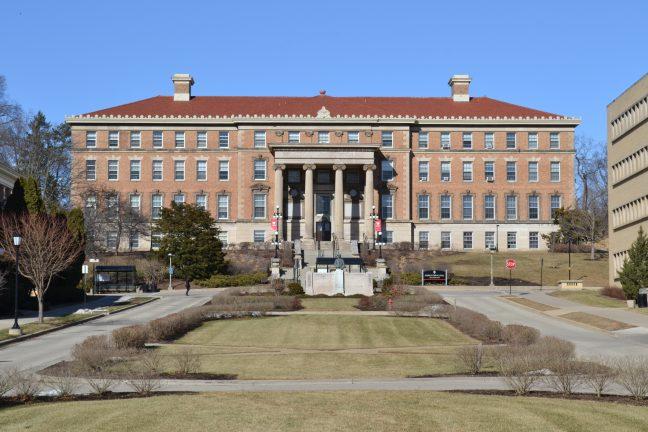Amid the continuing national conversation regarding sexual harassment, sexism and gender prejudice in the workplace, the University of Wisconsin reaffirmed its commitment to a campus climate free of sexual harassment, assault and misconduct.
This reaffirmation comes after recent scrutiny of the UW Department of Urban Planning, in which the almost entirely male faculty has divulged years of complaints from female students and staff about sexual harassment.
Multiple women have reported to the Wisconsin State Journal that the professor in question is Harvey Jacobs. UW officials also believe Jacobs to be the professor which against which these accusations have been levelled.
In a later email to The Badger Herald, UW spokesperson Meredith McGlone said this fall, a formal complaint has now been brought against Jacobs under Chapter 9 of Faculty Policies and Procedures. That could result in disciplinary action up to and including dismissal, she added.
University Health services violence prevention manager Samantha Johnson said these allegations could be referring to a range of incidents, all of which involve some “unwelcome and unwanted” action.
“Sexual harassment can include unwelcome sexual advances, unwelcome sexual requests, unwelcome physical contact of a sexual nature and unwelcome verbal or physical conduct of a sexual nature,” Johnson said.
In a March report, the Wisconsin Student Planning Association said current and former students have felt the “strain of the sexism, lack of protection and in some cases, sexual harassment and hostile behavior” at the Dept. of Urban Planning.
In a 2015 survey on sexual assault, the American Association of Universities found 53.3 percent of female graduate students reported experiencing sexual harassment during their time as a student at UW, and of those female graduate students, 22.2 percent cited that harasser was a faculty member, 10.7 percent said it was a staff member or an administrator, and another 4.8 percent said it was a person affiliated with a UW program.
Among UW’s staff, the UW Title IX Coordinator Lauren Hasselbacher said there have been five discrimination investigations conducted over the past five years in which sexual harassment was alleged against a university employee.
During a regularly scheduled review of the department, a faculty committee uncovered concerns about sexual harassment and the climate for women and a report was released.
“Accusations of sexism have been leveled against department members in the past and it appears that the community continues to struggle with this problem,” the report read.
The Department of Urban Planning faculty, students and staff were interviewed about gender relations within the department and whether they felt the program provided a safe, inclusive and comfortable space. The report found most women feel included, although several noted that they would not feel comfortable working one-on-one with some male faculty members.
Further investigation of the department’s climate was conducted by consultant Ann Zanzig, who interviewed members of the department to thoroughly evaluate their experiences.
It was found that of the 20 respondents, as many as 22 percent had either experienced or witnessed some form of harassment or discrimination due to gender, race or other personal attributes.
Following the release of the faculty review committee report, Zanzig’s report and the 2015 AAU report on seuxal assault, the need for reform has been requested by multiple groups.
The faculty review committee report posited recommendations for future actions, saying that the department should work to improve the departmental climate, including mandated diversity training for all faculty.
In response to the program review committee’s February 2017 report, the WSPA also came out with reform requests.
“Moving forward, URPL students expect to see immediate measures to address these issues on a short and long term basis,” the student group wrote to the department in March. “Students echo the severity of this issue as identified by the Review Committee and desire immediate action by the Department that addresses the scale of the issue.”
According to the report, this immediate action should include a dedication of time and resources necessary to ensure student safety.
‘Me Too:’ UW survivors speak out about their experiences, paths to recovery
McGlone said the department chair has worked with faculty, staff and students to address many of the concerns expressed.
This includes a variety of actions, such as conducting relevant surveys and ensuring transparent reporting of their results, ensuring the completion of sexual harassment awareness training and a commitment to diversifying departmental staff with respects to gender through the hiring of another tenured female professor, McGlone said.
While the efficacy of these changes has yet to be seen, allowing these reforms to have meaningful effect will take time. Johnson said the effects of sexual assault can linger and will continue to cause problems for survivors.
“The impact of harassment upon students and faculty that has already occurred will continue to manifest trauma, mental stress and PTSD-like symptoms,” Johnson said.
_____
Update 3:10 p.m.: This article has been updated to include an updated statement from UW spokesperson Meredith McGlone.
Correction: A previous version of this article misspelled the professor’s name. The Badger Herald regrets this error.


